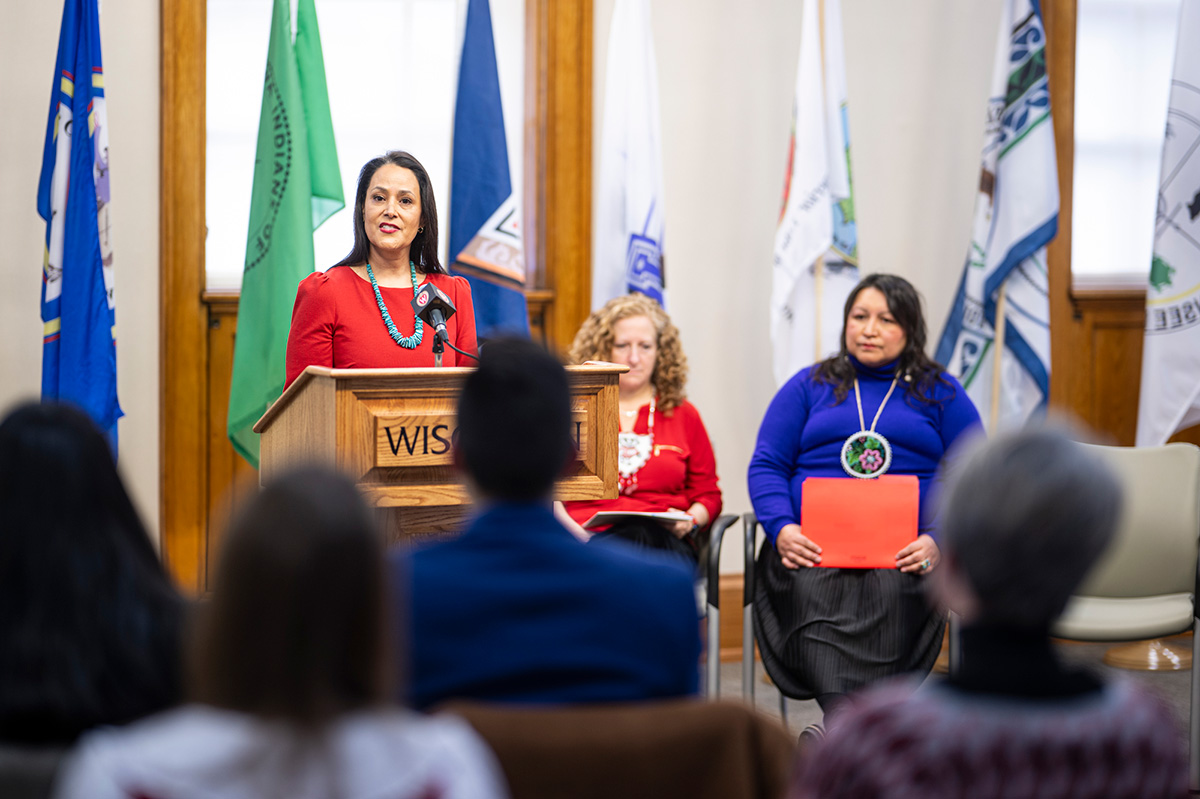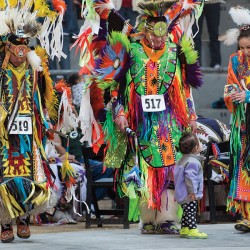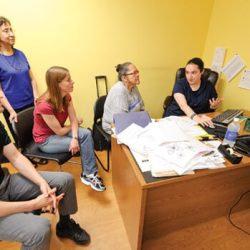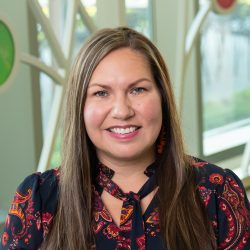Financial Help for American Indian Students
The Wisconsin Tribal Educational Promise will cover UW tuition and expenses.

Holsey: “This program sends a strong message that our students are important to the state’s flagship university.” Bryce Richter
Beginning this fall, UW–Madison will offer financial support to cover the full cost of pursuing an undergraduate degree for state residents who are enrolled members of federally recognized Wisconsin Indian tribes. The commitment covers not only tuition and fees but also housing, meals, books, and other educational expenses. Additionally, a five-year pilot program will cover in-state tuition and fees for students pursuing a law or medical degree who are Wisconsin residents and enrolled members of federally recognized Wisconsin tribes.
Together, the two new initiatives will be called the Wisconsin Tribal Educational Promise program. The program does not rely on taxpayer funding but is supported by other institutional resources, such as private donations.
“As a university, we are deeply committed to a future of mutual respect and cooperation with the American Indian tribes in Wisconsin,” says Chancellor Jennifer Mnookin. “This program is another tangible, meaningful step in that direction.”
As university leaders developed the initiatives over the past year, they consulted with the Great Lakes Inter-Tribal Council, a consortium that includes the tribal chairperson or president of each of the 11 federally recognized American Indian tribes in Wisconsin. Mnookin met with council members three times to discuss the proposed program, and changes were made based on those conversations. In October, the council unanimously voted to support the Wisconsin Tribal Educational Promise program.
“The creation of this program marks a significant step in the partnership between the American Indian tribes in Wisconsin and UW–Madison,” says Shannon Holsey, president of the Stockbridge-Munsee Band of Mohican Indians and chairwoman of the Great Lakes Inter-Tribal Council. “While several other states have programs with similar goals, we are not aware of another effort that goes this far financially to help Native students afford higher education. This program sends a strong message that our students are important to the state’s flagship university.”
Since 2016, a Native Nations working group at UW–Madison has sought to create educational networks, respectful research relationships, and culturally responsive engagement programs with the Native Nations of Wisconsin. In 2019, the university installed the Our Shared Future heritage marker on Bascom Hill, pledging a shared future of collaboration and innovation with the Ho-Chunk Nation, on whose ancestral land the university sits.
Published in the Spring 2024 issue



Comments
No comments posted yet.